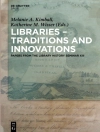In ‘Sebastian Bach, ‘ Reginald Lane Poole presents a meticulously researched exploration of the life and legacy of the iconic Baroque composer Johann Sebastian Bach. Poole’s literary style is characterized by its clarity and scholarly rigor, seamlessly weaving together biographical details with musical analysis, thus appealing to both general readers and musicologists alike. Set against the backdrop of the 18th century’s shifting cultural landscape, this work illuminates the socio-political influences that shaped Bach’s compositions while also delving into the intricate musical structures and theological underpinnings present in his oeuvre. Reginald Lane Poole, a prominent musicologist and historian, was profoundly influenced by his deep appreciation for both music and literature, which is evidenced in his comprehensive writing. Having devoted much of his academic career to the study of early music, Poole sought to demystify Bach for a broader audience, challenging prevailing narratives and emphasizing the composer’s innovative spirit and lasting impact. His scholarly training and passion for cultural history inform every page of this enlightening biography. This book is highly recommended for anyone seeking to understand the genius of Johann Sebastian Bach beyond mere notes on a page. Poole’s engaging prose and insightful analysis not only provide a richer appreciation of Bach’s music but also invite readers into the profound connections between art and life that defined the Baroque period.
Over de auteur
Reginald Lane Poole, a distinguished English historian and author, made enduring contributions in the field of historical writing, particularly with a focus on ecclesiastical and musical subjects. Poole’s scholarly pursuits reflected a fascination with medieval Europe, as he adeptly combined his in-depth knowledge of history with a profound interest in the arts. His work on ‘Sebastian Bach’ captures the life and influence of one of the Western canon’s most seminal musical figures, Johann Sebastian Bach. Poole’s approach to Bach’s biography is marked by meticulous research and a narrative style that threads the intricacies of Baroque music with the cultural and spiritual milieu of the time. The book contributes to a deeper understanding of Bach’s music, placing the composer within the rich tapestry of the 18th-century tradition. Poole’s methodical exposition and his sensitive insight into the composer’s religious convictions are reflective of the author’s broader literary style, which is characterized by a judicious balance of the academic rigor and accessibility to lay readers. With his works, Reginald Lane Poole occupies an esteemed place in the historical literature, offering readers pathways into the layered complexities of history and music.











